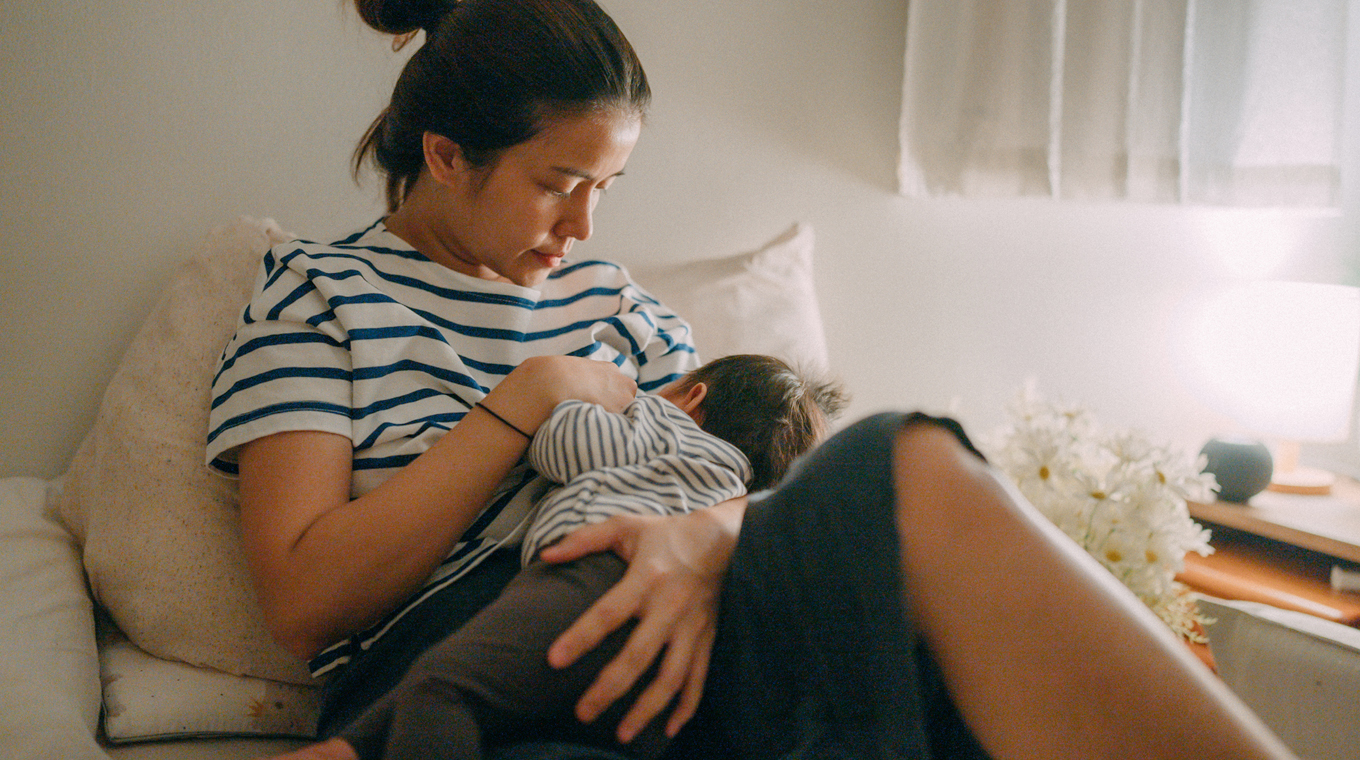
In this article
Ankyloglossia, also known as tongue-tie, is sometimes the cause of a baby’s troubles with latching during breastfeeding. It’s a condition that occurs in 10% of newborns though it is more common in boys. Signs and symptoms can vary or may not be present at all making it difficult to diagnose. That’s why it’s helpful to be aware of exactly what is tongue tie in babies and how it presents. Read on to recognize the symptoms of tongue tie and learn how it’s treated.
Recognizing tongue tie symptoms in nursing babies

During fetal development, the lingual frenulum or frenum, which is the tissue that connects the tongue and the mouth, is either too short, tight, or thick, thus affecting the tongue’s movement and range of motion. If your baby is having difficulty latching on or is making clicking noises while breastfeeding, tongue tie could be the culprit.
All babies have varying appetites, but if you notice your child constantly hungry or wanting to always nurse, they may not be getting adequate nutrition as a result of a tongue tie. When latching on, if your baby’s tongue is shorter and is pulled more tightly than it should be, getting a good latch will be challenging. They may choke because the milk is flowing too quickly or they’re unable to get a good suction going. You may notice inadequate weight gain or other signs of hunger.
If you’re experiencing pain while nursing your baby a tongue tie could be the problem. Without a good latch, your baby could compress the nipples, causing pain and discomfort. As a result of this, you could experience blocked milked ducts or mastitis due to an interrupted breast milk flow.
Signs of tongue tie in older children

Sometimes tongue tie symptoms present during early childhood. Some signs include the inability to move the tongue from side to side in the mouth or stick it out past the front bottom teeth. Poor oral hygiene can also be a sign of tongue tie in older children. If the tongue is too short to move food from the surface of the teeth, this can contribute to tooth decay. But often, a tongue tie goes unnoticed.
“Tongue-ties are frequently missed by doctors, nurses, and midwives,” New York lactation consultant Catherine Watson Genna explained to Today’s Parent. “Even the obvious ones get missed. And some are not obvious.”
Some experts believe that tongue ties contribute to speech difficulties; that children whose tongue ties and exhibit difficulty forming the sounds t, th, s, r, l, z and d should undergo treatment. However, others feel as though the evidence of a correlation between tongue ties and speech difficulties is anecdotal</a>; that a tongue tie rarely limits the articulation of certain words or sounds.
If you’re unsure of what to do, it may take more than one visit to your child’s healthcare provider. You may want to seek out a second opinion to ensure you’re on the right path. A lactation consultant can assist with nursing issues, and in older children, a speech-language pathologist can offer helpful insight.
Tongue tie treatment options

Babies of all ages and stages can undergo tongue tie treatment. “It’s a simple office procedure,” Genna explained. “The tissue doesn’t have a lot of nerves in it, and doesn’t bleed much either.”
Two types of procedures are used to treat tongue ties. A frenotomy is a simple and painless procedure in which a healthcare provider snips the frenum. Results are immediate and your baby should be able to immediately nurse comfortably.
In some cases the frenum is too thick for a quick snip, so a frenuloplasty is performed under general anesthesia. The surgeon loosens the frenum and will stitch the area. Recovery from a frenuloplasty generally takes about two to three weeks or less if surgery is done via laser.
Dee Jiminez chronicled her son Cash’s tongue and lip tie surgery on her YouTube channel, Peanutbuttervibes. “The procedure took about 5 minutes. The doctor said most mothers experience a significant difference in breastfeeding pain after the surgery. I was NOT part of that majority,” Jiminez explained. “But he also said that Cash needs to learn how to properly breastfeed again since he needs to learn how to control his upper lip and tongue now.”
There are no lasting effects due to tongue tie surgery, and in some cases, treatment may not even be necessary. Ankyloglossia can sometimes improve by itself in toddlerhood. Consult your child’s physician to determine which course of action is best for your baby.




